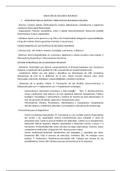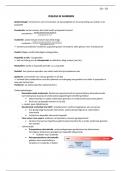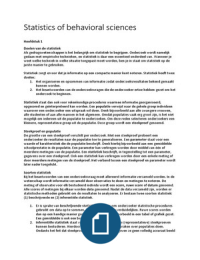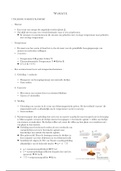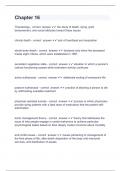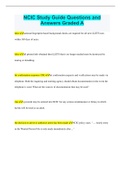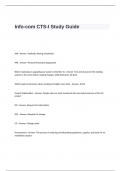Public International Law | LLB International and European Law | Year 2 | Block 2
Lecture 1: International Organisations
International Organizations: From Coexistence to Cooperation
● Formally, states are independent from each other — they have their own rules within
their domestic legal sphere, as well as own interests of sovereignty and equality. Despite
this, all states can determine the relations and contracts they wish to have with other
states.
○ e.g. with regard to diplomatic relations, trade relations, and what happens when
they enter into territory and (if needed) subsequent expulsion from territory.
● BUT IN REALITY: there is interdependence of states, despite the idea of them being
individual powerhouses. They still want to and have to cooperate with others, such as
through trade relations to ensure that a state gets the resources they need. Partnerships
are necessary for survival. Can have COMMON or COMMUNITY interests = problems
of a transnational / international character. All points back to globalization.
○ E.g. international rivers and straits must be managed cooperatively.
○ Peace and security, war and international terrorism.
○ Pollution (e.g. the ozone layer and climate change).
○ Human rights, trade.
● This necessary cooperation gave rise to the international organization (IO), to
streamline the regulation and management of cooperation in different key areas. They
can be on a variety of different topics / needs that need to be addressed and managed
(e.g. tin, post, etcetera).
● Are IO’s a higher authority than the states? At the end of the day, it was the states that
created them and became bound by their powers voluntarily. Plays into the principle of
specificity; the IO’s only have as much power as was conferred to them by their
constituting / member states.
● In international law, ab initio there is no higher authority than the state, therefore
states have the last word in the establishment of systems they are or aren’t willing to be
bound by.
Organs of the United Nations (UN)
● Organs of the United Nations include the UN Security Council, Secretariat, ICJ,
Trusteeship Council, General Assembly, as well as the Economic and Social Council.
● Specialized agencies are bodies established by intergovernmental agreement with a
variety of responsibilities across extremely varied areas, such as economic, social,
cultural, educational, health and other fields. (57 UNC) ECOSOC is able to enter
agreements with these specialized agencies to bring them into relationship with the UN.
(63 UNC)
● The ICJ in particular has a relationship with specialized agencies. They are able to send
requests for advisory opinions so long as the content is within their competence.
, ■ Specialized agencies include:
● IMF — international monetary fund
● WMO – world meteorological organization
● WHO — World Health Organisation
● ILO — International labor organization (one of the oldest
specialized agencies)
● IMO — International Maritime Organisation
● UPU — Universal Postal Union
● UNWTO — UN World Tourism organization
● UNIDO — Industrial Development Organisation
● World Intellectual property organization
● ICAO – International civil aviation organization
● ITU — International telecommunications union
● UNESCO —- educational, social, cultural org
● The World Bank
● [Note: you only need to know the principal organs of UN]
Types of Organs
● Principal organs = main organs that hold the most importance and responsibilities.
○ GA, SC, ECOSOC, Trusteeship council, ICJ, Secretariat.
● Subsidiary organs = other organs that, while still important, may act to manage less
essential functions.
○ ILO, WHO, UNESCO.
● Political organs = most of their work is done amongst a large group of representative
ministers. such as GA, every state party is represented there with one vote., and have
the ability to be represented there and have 1 vote. Depending on the type of organ,
different things may give different votes.
○ Plenary organs = organs where the members meet periodically.
○ Limited (executive) organs = such as the SC. It has 5 permanent members,
plus 10 other members that switch out every few years. This is done with
geographic considerations, as well as other elements, taken into account. The
veto was presented as a safety mechanism — since there are powers with very
different views, it would not allow for the views of only one main power to prevail.
● Administrative organs = secretariats; “unsung heroes”. E.g. UNTS system created by
them. They ensure the good management of the organization. They are ALWAYS
established in IO’s or even multilateral bodies, as they organize meetings, etc.
● Judicial organs (and expert bodies) = International Court of Justice, located in the
Peace Palace with the Permanent Court of Arbitration, and sometimes IO’s set up their
own bodies to settle disputes, which can be courts and tribunals, under UN the ICJ can
exercise jurisdiction on disputes of any kind, given the UN’s general aims and
competence in variety of areas.
○ Expert bodies = such as the International Law Commission (wrote ARSIWA,
DARIO…), whose mandate is to work towards the codification and development
of new international law (progressive development by creating articles of


